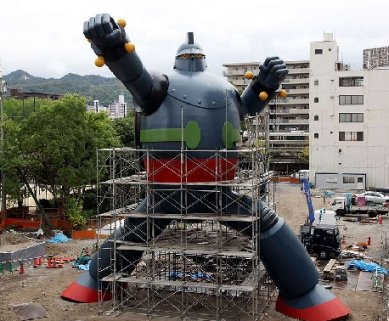Open door policy could be widened for construction
 Japan may expand its policy offering foreigners permits to work for up to three years, as the nation struggles to fill voids in its rapidly shrinking workforce.
Japan may expand its policy offering foreigners permits to work for up to three years, as the nation struggles to fill voids in its rapidly shrinking workforce.
Japan is aging faster than any other nation on Earth, and has maintained a policy of welcoming workers from China and other countries with long working visas.
Now, Japanese Prime Minister Shinzo Abe's Liberal Democratic Party has submitted a proposal to allow workers to stay for up to five years, relax hiring rules for employers and boost the number of jobs available to outsiders.
“We will strengthen the governance of the program,” LDP lawmaker Yasuhisa Shiozaki, who authored the proposal, told reporters this week.
“We are aware of the concerns and we allowed people who had objections to voice their objections.”
There has been plenty of controversy over the work sponsorship program, which was set up in 1993 to provide foreigners with jobs and training in technical expertise.
Lawyers and labour activists say many of the 150,000 mostly Chinese workers face abuse, criminally low wages, lack of education and confiscation of passports.
The United Nations called on Tokyo to scrap the programme in 2010, saying such conditions “may well amount to slavery”.
In 2012 around 200 companies were found to have mistreated and abused their foreign trainees. There were 90 cases where wages were found to be below the legal minimum, as well as more than 170 cases of labour regulation violations.
The government has promised harsher penalties for Japanese companies that abused foreign workers and says it will use external inspectors and local governments to monitor compliance, but Shoichi Ibusuki, a lawyer who has represented foreign workers based in Tokyo, said the proposed safeguards would not go far enough.
“The workers can't freely choose their workplace after coming to Japan. They are refused the right to sign and cancel contracts, so they have no freedom as labourers,” said Ibusuki.
“If you don't fix this structural problem, it doesn't matter how much you tighten regulations, it won't go away,” he said.
The lack of workers in the construction industry especially is hampering Prime Minister Abe's ambitious economic revival plans. It also threatens projects tied to the 2020 Tokyo Olympics and reconstruction work in areas destroyed by the 2011 tsunami.








 Print
Print